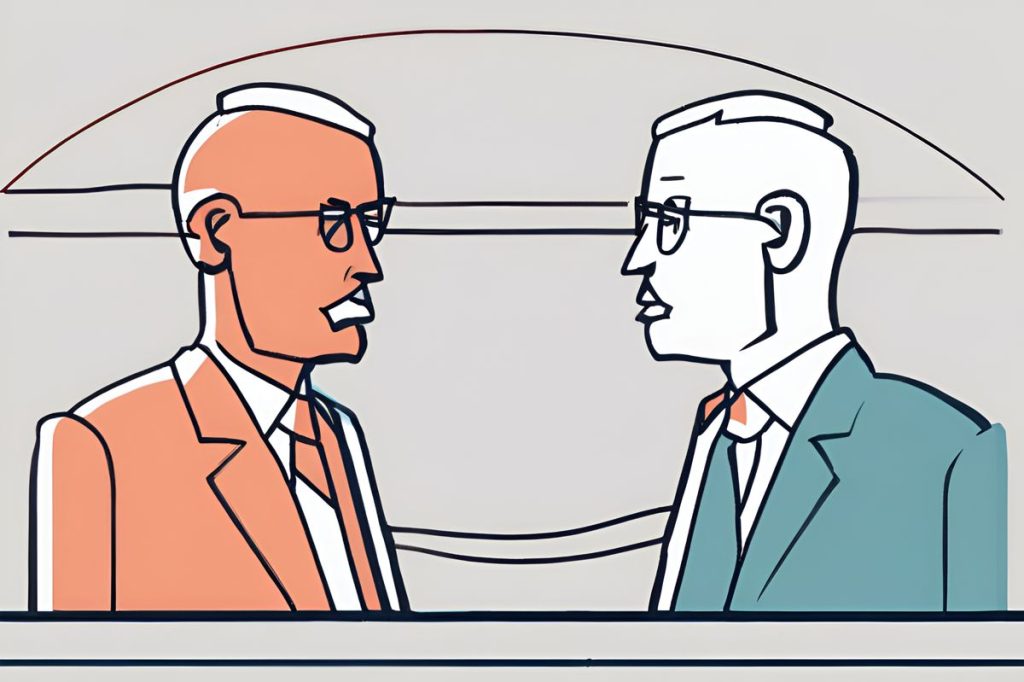President Nikos Christodoulides of Cyprus and British Prime Minister Rishi Sunak met to discuss migration issues, including Cyprus’s asylum seekers from Lebanon and Ireland’s flows from the UK. Legal hurdles and identifying “safe countries” for returns were key topics of conversation.
What were the main points of the migration talks between President Nikos Christodoulides and Prime Minister Rishi Sunak?
President Nikos Christodoulides of Cyprus and the British Prime Minister, Rishi Sunak, discussed strategies to manage the rising challenges of migration in the EU. Key points included:
- Addressing Cyprus’s influx of asylum seekers from Lebanon.
- Tackling Ireland’s increased asylum flows from the UK.
- Overcoming legal barriers and international cooperation issues.
- Debates on identifying “safe countries” for returning asylum seekers.
Migration Talks Between Leaders
In a significant meeting that took place on a Tuesday, President Nikos Christodoulides of Cyprus came together with the British Prime Minister, Rishi Sunak, to discuss pressing migration issues. Both leaders are at the forefront of addressing the complex challenges of migration that their respective countries face at either end of the European Union. Cyprus, positioned at the EU’s eastern border, has recently experienced an influx of asylum seekers arriving from Lebanon. Ireland, at the westernmost part of the Union, is dealing with increased asylum flows from the United Kingdom.
The dialogue between Christodoulides and Sunak reflects the need for international cooperation and shared strategies in handling the migration crisis. The situation is exacerbated by the political and economic conditions in the migrants’ countries of origin, prompting individuals and families to seek refuge elsewhere.
The Eastern and Western EU Borders
Cyprus and Ireland are feeling the weight of asylum seeker arrivals, albeit from different origins. The Cypriot government has reported a spike in arrivals from Lebanon, while Ireland has noted an increase in those coming from the UK. Irish Justice Minister Helen McEntee highlighted that approximately 80 percent of asylum seekers in Ireland have crossed the land border with Northern Ireland, which remains part of the UK post-Brexit.
Both Lebanon and the UK have exhibited reluctance to repatriate migrants who have landed on EU soil. The Interior Ministry of Cyprus indicated Lebanon’s resistance to accept returns from the island nation. Simultaneously, the UK’s position has been made clear by Prime Minister Sunak’s statements to ITV, expressing disinterest in accepting returned asylum seekers.
Mitigation Efforts and Legal Challenges
Cyprus has seen partial success in curbing migrant flows thanks to the European Commission’s promises of aid to Lebanon and strategic placement of Cypriot police boats along the Lebanese coast. However, Ireland’s unique situation, with its historically sensitive border with the UK, poses different challenges. There are no easy solutions for Ireland, especially after its High Court’s March ruling that disqualified the UK from being considered a “safe country” for returning asylum seekers—a move in light of the UK’s potential deportation plans involving Rwanda.
Irish officials are seeking to navigate these legal hurdles. Helen McEntee pressed for emergency legislation to counteract the High Court’s decision, aiming to reinstate the UK’s safe country status. Yet, the efficacy of such measures is questionable, as echoed by Sunak’s firm stance on not accepting migrant returns.
EU Member States and the Safe Country Concept
The disputes surrounding the identification of “safe countries” for asylum seeker returns are not limited to Cyprus and Ireland. Cyprus strongly advocates for the recognition of Syria as a safe country for returns, a stance supported by several EU member states. Among these are Denmark, the Czech Republic, Greece, and Austria, according to claims based on assessments by the European Union Agency for Asylum (EUAA) of the conditions in Syrian provinces like Damascus and Tartus.
The EU’s approach to migration is multi-faceted, involving legal, humanitarian, and diplomatic efforts. As countries grapple with the immediate challenges of increased asylum seeker arrivals, broader questions about the safe country designation and international cooperation remain central to the ongoing dialogue.
What were the main points of the migration talks between President Nikos Christodoulides and Prime Minister Rishi Sunak?
President Nikos Christodoulides of Cyprus and the British Prime Minister, Rishi Sunak, discussed strategies to manage the rising challenges of migration in the EU. Key points included:
- Addressing Cyprus’s influx of asylum seekers from Lebanon.
- Tackling Ireland’s increased asylum flows from the UK.
- Overcoming legal barriers and international cooperation issues.
- Debates on identifying “safe countries” for returning asylum seekers.
How are Cyprus and Ireland affected by the migration crisis in the EU?
Cyprus and Ireland are experiencing challenges with asylum seekers originating from Lebanon and the UK, respectively. Cyprus has seen a spike in arrivals from Lebanon, while Ireland has noted an increase in those coming from the UK, particularly crossing the land border with Northern Ireland.
What legal and diplomatic challenges are involved in returning asylum seekers to their countries of origin?
Both Cyprus and Ireland face legal hurdles in returning asylum seekers to their countries of origin. Cyprus is advocating for Lebanon to accept returned migrants, while Ireland has faced obstacles after the UK was disqualified as a “safe country” for returning asylum seekers due to potential deportation plans involving Rwanda.
How are other EU member states involved in the discussions around identifying “safe countries” for asylum seeker returns?
Several EU member states, including Cyprus, Denmark, the Czech Republic, Greece, and Austria, are advocating for the recognition of Syria as a safe country for returning asylum seekers. The broader discussion within the EU involves legal, humanitarian, and diplomatic efforts to address the challenges of migration and cooperation on identifying safe countries.

